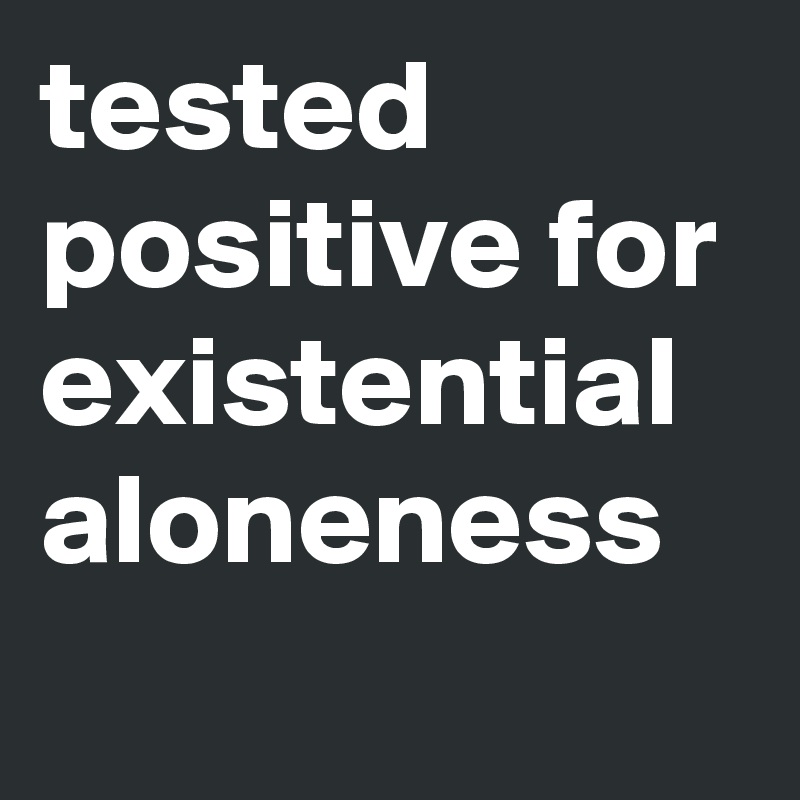
01 Nov How often have you found yourself thinking…
…“nobody else is me or can know what it is to be uniquely me”? This blog is about the phenomena of knowing only ourselves, in our existential isolation from others.
In existential thinking we understand our existence and purpose in ‘being’ as ‘mutable’ – a fluid and ever alterable construct, shaped through our experiencing, exposure to learning through the opportunities offered to us and those that we are ultimately free to make for ourselves. It might be offered that we ‘build out’ our life from our predisposing genetics and other ‘givens’ at birth, some of which are or might at first appear to be unalterable constructs. Think about how science and medicine help to play a part in moderating, reversing or transforming our physiological and other affects, including for example, our gender identity.
Through embracing the notion of freedom, choice and responsibility in our lives we can make changes – large or small and relative to our givens or circumstances, for a more fulfilling life experience. We can also choose to do nothing at all – that decision still being a choice that we might exercise but knowingly doing so. We just need to know that the freedom to make a choice and take responsibility for living-out our life more fully and vitally as best we can, as us, and all that we believe about who we are or could be is a possibility. Existential thinkers believe that we are thrown into our beginnings – the world, from a prenatal ‘no-thing-ness’. We then exist and our ‘some-thing-ness’ develops in our essence or core nature, through our experiencing of others and the world and later, through our unique self-design. The way in which we choose to live and be.
The existential assumption is that we live only to die and complete our being and in our existence – that bit between being and not being anymore (finitude) is a largely uncertain encounter, characterised by an interminable, unconscious Anxiety. This Anxiety is caused by confronting the unknowns and the threat to our thriving and so-called ‘being-in-the-world’ or living fully, ‘in-life’. Only death is certain, although when and how death might occur is typically uncertain. In life, it is offered that our selfhood is always in some state of interdependence with others, which cannot nor perhaps should be avoided, given our essentially relational disposition and the need to transact and inter-relate with others. However, there is also a sense of permanent separateness between us as human beings, that – nobody else is me or can know what it is to be uniquely me (nor me them).
It is the experience of repeated ‘thrown-ness’ – being particularly thrown by difficult, traumatic or destabilising events, at different times in our life that arouses the (existential) Anxiety that pervades our lives and ultimately reminds us of our unique ‘alone-ness’, our intrapersonal isolation. During these life events our Anxiety is experienced more acutely, intensely and this brings us into conflict with ourselves and ultimately brings us to therapy, analysis and other ‘questing’ treatments.
So, what about therapy as a ‘questing’ treatment? Existential therapy, as a discreet model gives emphasis to the thematic concerns of existence that are typically but not exclusively, the concepts of freedom, choice and responsibility, authenticity (choosing the nature of one’s existence and identity), guilt, and Anxiety. The existential psychotherapist, Rollo May offers the therapeutic relationship in existential therapy or indeed other forms of therapy that incorporate an existential perspective to be “a philosophical discussion about life, customized to a client’s issue…to set the client free”. Inspiringly, existential philosopher and theologian, Paul Tillich, offers the confrontation of existential themes and concerns by a person as the “courage to despair (contemplating non-being, death, head-on) and courage to be (as part of individual self-hood and embracing the whole of being-in-the-world)”.
In concluding, therapy informed by existential thinking might be best understood as a guided exploration between client and therapist where the therapist’s attitude and values philosophically inform their support for the person in front of them. More philosophical and less clinical – examining perhaps the most basic and essential things that we all experience as living but finite human beings then figuring out a different future and changed world view based upon the person’s knowing of themselves, where they fit, currently and want to fit in the future.
Wanting guided support with your own existential themes and concerns? Do you have the courage to despair but also the courage to be?
Banish the Crows has something of value to offer to you – unique, skilled, independent, and confidential.
Best Contact:
Jeremy Boughey
T: 07791 524 634
E: Jeremy@banishthecrows.co.uk



Lynne Harmon
Posted at 18:53h, 06 NovemberAfter being exposed to the powerless feeling that can accompany so many of life’s challenges, to be given the idea that understanding myself and the human condition and by exercising choice, I can bring change is exciting. Also by acting responsibly and by taking responsibility, I can see that I can be liberated in that choice and this dispels so many fears of being overcome. To be able to work with someone who approaches their therapeutic interventions in this way provides such an opportunity for rich encounters, exploration and experience that makes the journey of therapy an exciting prospect rather than one to raise anxieties. Thank you for bringing Banish the Crows and such opportunities into existence.. So much to learn, love and enjoy in life still when hope has been lost..